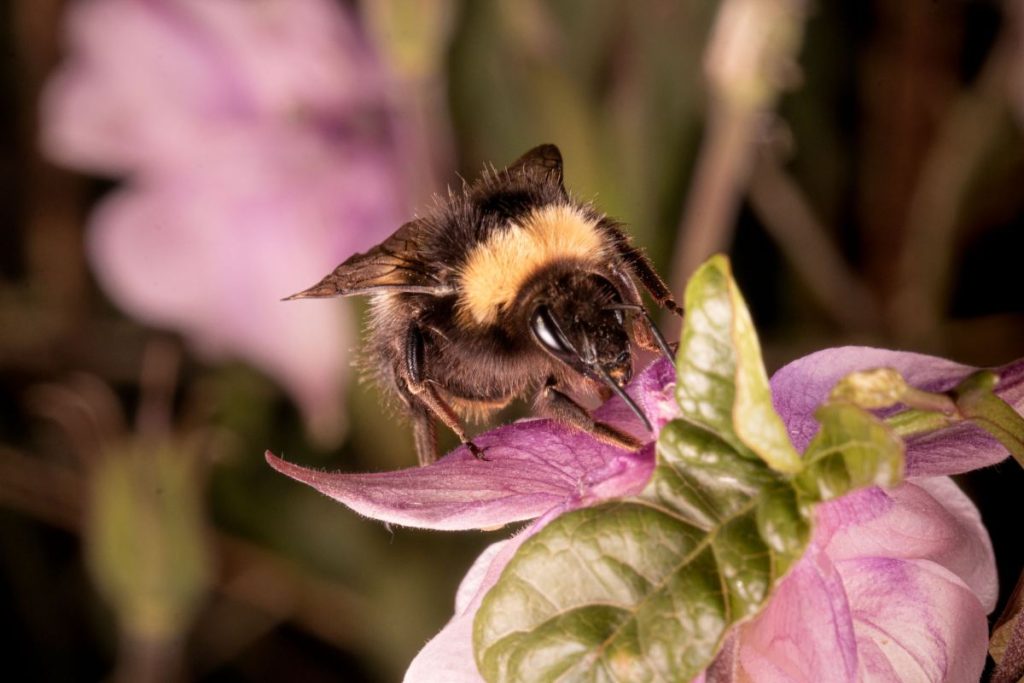‘State of nature’ showed time is running out fast – politicians have to act – Inside track
4 min read
This post is by Alice Hardiman, director of campaigns and mobilisation at RSPB.
The latest State of nature report 2023, published last week, is the most accurate and up to date study of UK nature we have. While we knew wildlife was in trouble, the latest numbers still have the power to shock. Almost 1,500 species now risk becoming extinct in Great Britain. This includes 43 per cent of birds, 31 per cent of amphibians and reptiles, and 26 per cent of land mammals. Much loved species such as the turtle dove, water vole and European eel could vanish altogether from this country.
Many plants have disappeared from places where they were once common, including more than half (54 per cent) of flowering plants, such as heather and harebell. Invertebrate species are found, on average, in 13 per cent fewer places now than in 1970. There have been strong declines in some insect groups with important roles in ecosystems, such as pollinators like bees and hoverflies.We know the solutions
The report is a comprehensive assessment, bringing together information from more than 60 research and conservation organisations. Thousands of professionals and skilled volunteers took part in collecting the data. Their dedication and hard work have provided results which add to a body of work which gives us the best understanding of the state of nature we’ve ever had and, crucially, what we need to do to fix it.
But the report makes it very clear that time is running out to put solutions into practice. We urgently need politicians of all parties across the UK to commit to protecting and restoring our natural world. This will only happen if nature is central to their decision making. That’s why we have launched the Nature Can’t Wait campaign. It’s designed to help people understand the scale of the crisis and what politicians should do to tackle it.
Five ways to bring back natureIn England, the five asks of the campaign mirror those of Wildlife and Countryside Link’s Nature 2030 campaign, launched in July this year, calling for all political parties to include commitments in their general election manifestos. There’s a huge public appetite for greater environmental ambition and now is the time to rise and meet it. The five asks for England are:
1.Increase funding for nature-friendly farming
In England 69 per cent of land is farmed. For nature to recover, making more space for it on farmland must be at the heart of the way we produce food. Incomes in many parts of the agricultural sector are low, so support must be increased to enable the switch to nature-friendly farming while improving the lot of farmers. This should reduce intensive methods and chemical use, and help nature to return, bringing other benefits with it in the form of better air and water quality and increasing access to nature.
2. More spaces protected for natureToo few places are protected for nature. Many that are supposed to be are in poor condition, with a large number fragmented or cut off. In England, just seven per cent of land is protected and only just over a third of that is in good condition. This is just a small fraction of the government’s commitment to protect 30 per cent of land and sea for nature by 2030.
3. Green jobsHalting nature’s decline will take a lot of work to restore habitats and recover species. This should be funded and resourced through a new National Nature Service, which would provide a training programme so there are sufficient skilled people to carry out this scale of activity, helping more wild spaces to thrive. It needs to include targeted paid work opportunities for young people and marginalised communities to support those who really need jobs to find fulfilling careers.
4. Make polluter pays the ruleMajor economic sectors, including finance, retail and energy contribute to nature’s decline. The polluters should be expected to pay for and contribute to nature’s recovery. This will increase the resources available for protecting and restoring habitats, to support the creation of new jobs and generate greater investment in nature’s recovery.
5. Give everyone free, easy access to good quality natureThe vast majority of people (90 per cent) think access to nature is important for their health. But, in England, 38 per cent do not have a green space within 15 minutes’ walk of their home. Environmental deterioration has significant public health consequences. Lives are shortened by air pollution, people fall ill from poor water quality and community wellbeing declines where there are fewer accessible, good quality natural spaces. An Environmental Rights Bill would establish a human right to a healthy environment. This would lead to public bodies making more positive decisions for nature, saving the NHS and social care billions of pounds, and improving health outcomes for millions.
This campaign hopes to turn the understanding that State of nature has given us all, and the hope for a better future, into concrete action, by giving people the information they need to speak to their elected representatives ahead of the next election. This is the moment finally to step up and do something that will make a difference. Nature can’t wait.
The Nature Can’t Wait campaign was launched on 28 September. Find out more.
Photo by david Griffiths on Unsplash





